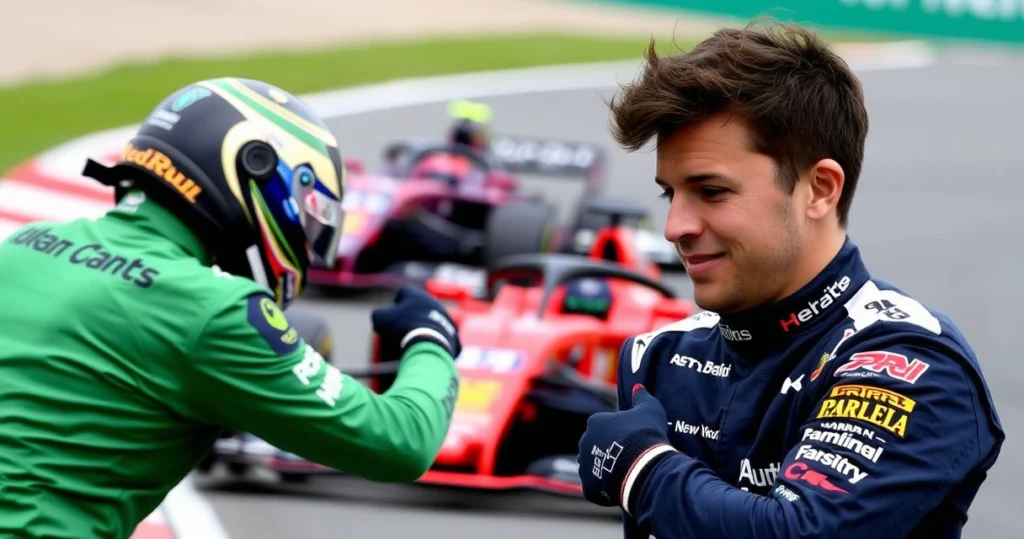Evaluating the Impact: Are the Innovations in the Club World Cup Good or Bad?
The Club World Cup has long been a prestigious event in the world of football, bringing together the champions of various continental tournaments to compete for global supremacy. However, the 2025 Club World Cup has introduced a range of innovations that have sparked widespread discussion among fans, players, and analysts alike. As the tournament progresses, it’s essential to evaluate the impact of these innovations on the game, the participants, and the overall viewing experience. This article delves into these developments, presenting a comprehensive analysis of whether the innovations in the Club World Cup are beneficial or detrimental.

With advancements in technology and changes in the sporting landscape, the 2025 tournament has made significant strides. From alterations in tournament format to the introduction of new technologies, the implications of these innovations are far-reaching. This evaluation aims to dissect these changes and provide insights into their potential long-term effects on football as a whole.
Understanding the Innovations in the 2025 Club World Cup
The 2025 Club World Cup has been marked by several key innovations designed to enhance the tournament experience and improve competitive fairness. These changes have been implemented in response to the evolving nature of football and the expectations of fans and stakeholders globally.
1. Expanded Tournament Format
One of the most significant changes in the 2025 Club World Cup is the expansion of the tournament format. Previously featuring seven teams, the tournament now includes 32 teams competing in a month-long event. This expansion allows for a more diverse representation of footballing nations and clubs, increasing the tournament’s global appeal.
2. Introduction of VAR and Advanced Technology
The use of Video Assistant Referee (VAR) has become more prevalent in football, and the 2025 Club World Cup has taken this a step further. Along with VAR, advanced technologies such as goal-line technology and enhanced player tracking systems have been integrated into the tournament. These tools aim to reduce human error and ensure fair play, thus impacting the matches positively.
3. Environmental Initiatives
In line with global sustainability trends, the 2025 Club World Cup has introduced several environmental initiatives. These include the use of renewable energy sources for stadium operations, waste reduction strategies, and promoting eco-friendly transportation for fans. These initiatives are intended to minimize the tournament’s carbon footprint and set a precedent for future sporting events.
4. Enhanced Fan Engagement
Fan engagement has been revolutionized through various digital platforms and technologies. The introduction of augmented reality (AR) applications and interactive features on broadcasting platforms allows fans to immerse themselves in the tournament like never before. These innovations not only enhance the viewing experience but also create a stronger connection between clubs and their supporters.
Positive Impacts of Innovations
The innovations introduced in the 2025 Club World Cup have garnered widespread approval for several reasons. Here are the key positive impacts:
- Increased Accessibility: The expanded tournament format allows more clubs from diverse regions to participate, making the tournament more inclusive.
- Improved Fairness: Technologies like VAR and goal-line technology significantly reduce contentious decisions and promote fair play.
- Sustainability: Environmental initiatives demonstrate a commitment to sustainability, appealing to socially conscious fans.
- Enhanced Fan Experience: Digital innovations and interactive features create a more engaging and immersive experience for fans globally.
Negative Aspects of the Innovations
While the innovations have many advantages, they also raise concerns that merit discussion. Below are some of the negative aspects of the changes introduced in the 2025 Club World Cup:
- Over-commercialization: The expanded format may dilute the tournament’s prestige, leading to concerns about over-commercialization and diminished quality of competition.
- Technology Dependence: The reliance on technology, such as VAR, can lead to disruptions in the flow of the game and create frustration among players and fans.
- Environmental Challenges: Implementing sustainability measures can be costly and logistically challenging for host countries.
- Digital Divide: Not all fans have equal access to advanced digital technologies, potentially creating disparities in engagement.
Comparative Analysis of Past Tournaments and the 2025 Club World Cup
To further evaluate the impact of the innovations in the 2025 Club World Cup, it is crucial to compare it with previous tournaments. The examination of historical data can reveal trends and shifts that may influence the future of football.
1. Tournament Structure
Historically, the Club World Cup featured a limited number of teams, which often resulted in predictable outcomes. The introduction of a more extensive tournament structure in 2025 has changed the dynamics, allowing for more surprises and upsets.
2. Use of Technology
In earlier tournaments, refereeing decisions were often criticized due to human error. The adoption of VAR and other technologies in the 2025 tournament aims to address these issues, providing a more streamlined and accurate officiating process.
3. Fan Experience
Previous tournaments primarily relied on traditional broadcasting methods, limiting interactivity. The current integration of advanced technologies offers fans a more immersive experience, which is crucial in today’s digital age.
Future Implications for Football
The innovations in the 2025 Club World Cup may have long-lasting implications for football as a whole. As these changes gain traction, they could set new standards for other tournaments worldwide. Here are some potential future implications:
- Global Expansion: The success of the expanded format could lead to similar changes in other international tournaments, promoting inclusivity.
- Standardization of Technology: The use of advanced officiating technologies may become a norm in all levels of football, enhancing fairness across the board.
- Sustainability as a Priority: The emphasis on sustainability could push more organizations to adopt eco-friendly practices in sports.
- Innovative Fan Engagement: As technology continues to evolve, fan engagement strategies will likely become more sophisticated, bridging gaps between clubs and supporters.
Frequently Asked Questions (FAQ)
1. What are the key innovations introduced in the 2025 Club World Cup?
The 2025 Club World Cup has introduced an expanded tournament format, advanced officiating technologies like VAR, environmental initiatives, and enhanced fan engagement through digital platforms.
2. How has the tournament format changed?
The tournament has expanded from seven to 32 teams, allowing for a more diverse representation of clubs from around the world.
3. What are the benefits of using technologies like VAR?
Technologies like VAR help reduce human error in officiating, ensuring that decisions are fair and accurate, which can enhance the overall integrity of the matches.
4. Are there any drawbacks to the innovations?
Yes, some drawbacks include concerns about over-commercialization, reliance on technology disrupting the flow of the game, and potential disparities in fan engagement due to digital divides.
5. How might these innovations affect the future of football?
The innovations could set new standards for other tournaments, leading to a global expansion of football, standardization of technology, and greater emphasis on sustainability in sports.
Conclusion
The innovations introduced in the 2025 Club World Cup represent a significant evolution in the way football is played and experienced. While there are valid concerns regarding commercial motives and reliance on technology, the positive impacts on fairness, inclusivity, and fan engagement cannot be overlooked. As we evaluate the effects of these innovations, it is clear that they hold the potential to reshape the future of football, paving the way for a more equitable and engaging sporting experience. Ultimately, the success of these changes will depend on how well they are integrated into the fabric of the sport and how they are received by fans, players, and stakeholders alike.
📰 Original Source
Este artigo foi baseado em informações de: https://www.bbc.com/sport/football/articles/cdx5r85yng9o


